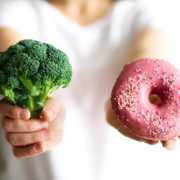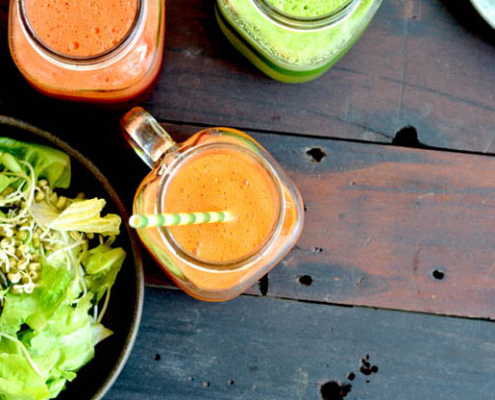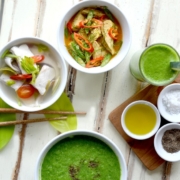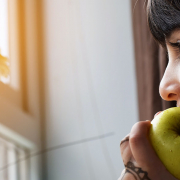 https://samahitaretreat.com/wp-content/uploads/2024/01/Untitled-design-7.png
1200
1800
Kirsten Mia
http://samahitaretreat.com/wp-content/uploads/2024/01/samahita-logo-v2.svg
Kirsten Mia2024-01-10 09:35:492024-01-10 09:35:49Rise of the junk food generation
https://samahitaretreat.com/wp-content/uploads/2024/01/Untitled-design-7.png
1200
1800
Kirsten Mia
http://samahitaretreat.com/wp-content/uploads/2024/01/samahita-logo-v2.svg
Kirsten Mia2024-01-10 09:35:492024-01-10 09:35:49Rise of the junk food generationStaying Healthy after a Detox
For many people taking a detox is a challenging but highly rewarding experience. Feeling lighter, healthier and happier are common outcomes and makes all the effort worthwhile. But what happens after? Its easy to slip back into unhealthy habits or get stuck in a detox-retox cycle. This blog explains how to maintain that healthy rhythm in your life, make sensible food choices and realise that its not just about what you’re eating.
Firstly, remember these daily detoxifying tips:
- Have a fresh vegetable juice daily
- Drink more water
- Have a spiritual/yoga/meditation practice
- Be aware of your relationship with food
- Eat mindfully/chew your food
- Go to bed by 10pm
- Don’t check your phone for the first hour after waking and for an hour before sleeping
After doing a detox the body and digestion can be more sensitive allowing you to see and feel which foods, thoughts, behaviors and environments serve you well. Not all foods are good for all bodies. There are a few factors to consider when choosing what foods to eat such as gender, culture, age, climate, body type, food combinations and any previous digestive ailments you may have had. Hopefully, after a detox, you will have more awareness and will know and feel what is good for you.
What should I eat after detoxing?
The biggest challenge after doing a detox is to not re-pollute your body when you go back to your daily routine. This is why we encourage you to eat whole natural foods and stay away from processed foods, processed grains, poor quality dairy, meats, alcohol, and SUGAR for as long as possible!
The first few days, for up to a week, start with easily digestible foods such as:
- Papaya, watermelon, dragon fruit
- Steamed vegetables
- Vegetable juices
- Continue with soups and broths
- Organic eggs and other animal protein – towards the end of the week
- whole grains – towards the end of the week, depending on your body.
In the first few weeks after detoxing, adding different foods gradually will help you to identify foods that make YOUR digestion either happy or un-happy. Eg;
- Raw food, although packed with nutrients that nourish the body can be harder to digest, and for some people it causes a lot of problems.
- Brown rice is said to be better for you, but can also be harder to digest. Grains serve some and not others.
- Coffee! Are you drinking coffee with milk that comes from factory farmed cows and sugar…? Or black, organic coffee? Although coffee has many good qualities (high in polyphenols, antioxidants & flavonoids) it also has ‘bad’ qualities (high caffeine, hormonal levels) (1) and effects individuals differently.
Experiment slowly and mindfully. Just because you like a certain food does not mean it serves YOUR body.
Food Combinations
Experimenting with different combinations of foods is an excellent way to observe how the body responds.
I have heard reports of improved digestion, ie. relief from constipation, after changing the way food is combined in a meal. Specifically the mixing of animal protein (meat, fish, chicken) with starchy carbohydrates (rice, pasta, noodles, bread). The key is to combine animal protein with vegetables not starchy carbohydrates and to combine starchy carbohydrates with vegetables not meat. Try it and see how you feel.
Doing a detox can bring many benefits that you can carry into long-term health. It’s important to remove unhealthy addictions and habitual behaviors that are not serving a healthy lifestyle, and to incorporate detoxifying measures into a daily routine.
Patterns and substances that can be addictive and need to be watched are:
- Cravings for sugary, processed foods
- Caffeine
- Nicotine
- Alcohol
- Emotional eating
- Over exercising
- Bingeing
These are ultimately destabilizing and lead to a rollercoaster of highs and lows that undo the hard work done to maintain a healthy, calm, balanced life.
To keep the light, happy feeling after a detox, go slow, be mindful, eat natural foods, listen to your body (rather than your impulses) and keep up a spiritual practice. Remember it is also important to get support from friends or, if necessary, a professional who can guide you through those difficult moments.
References
*1. Accidentally Overweight: Dr. Libby Weaver, 2010
More from the Samahita Blog







